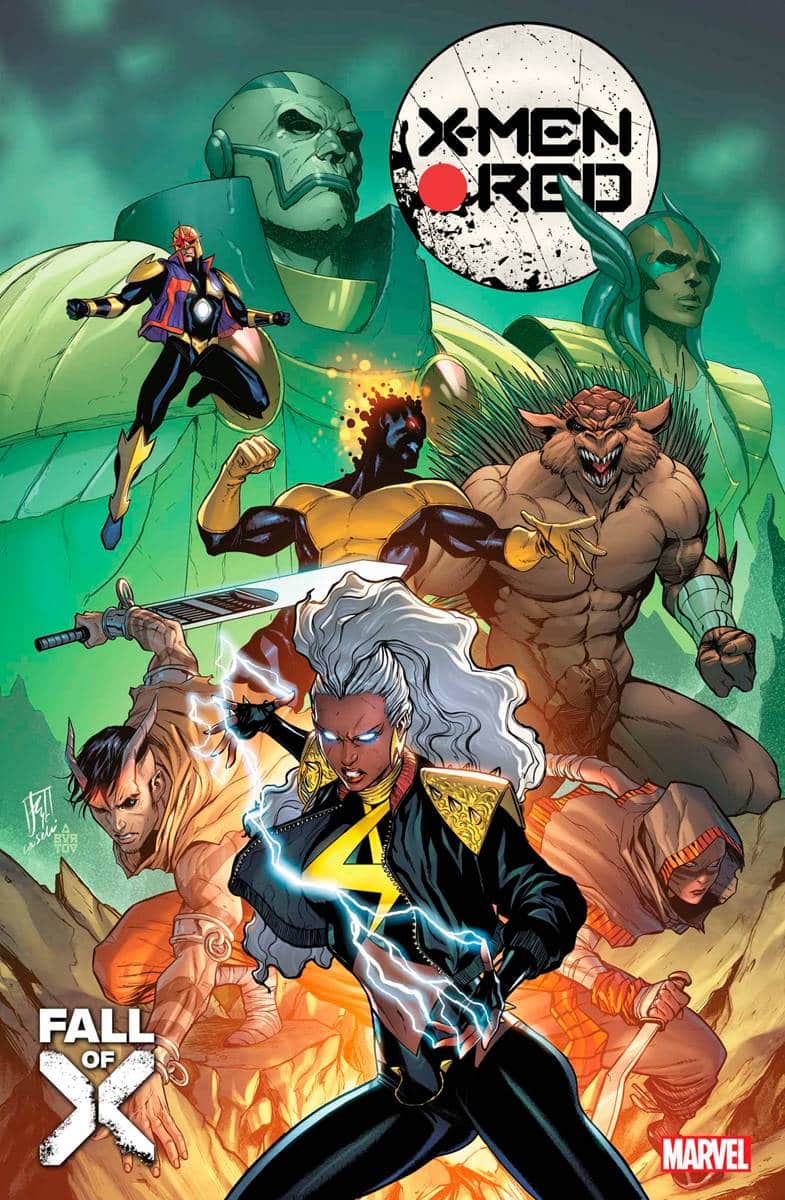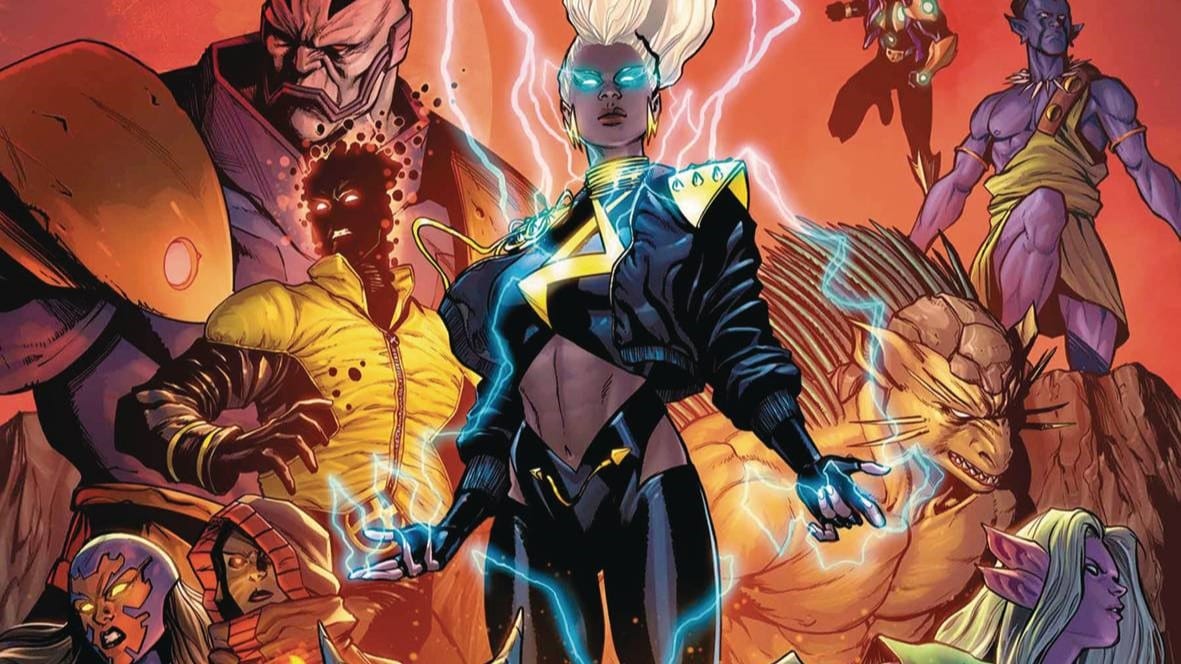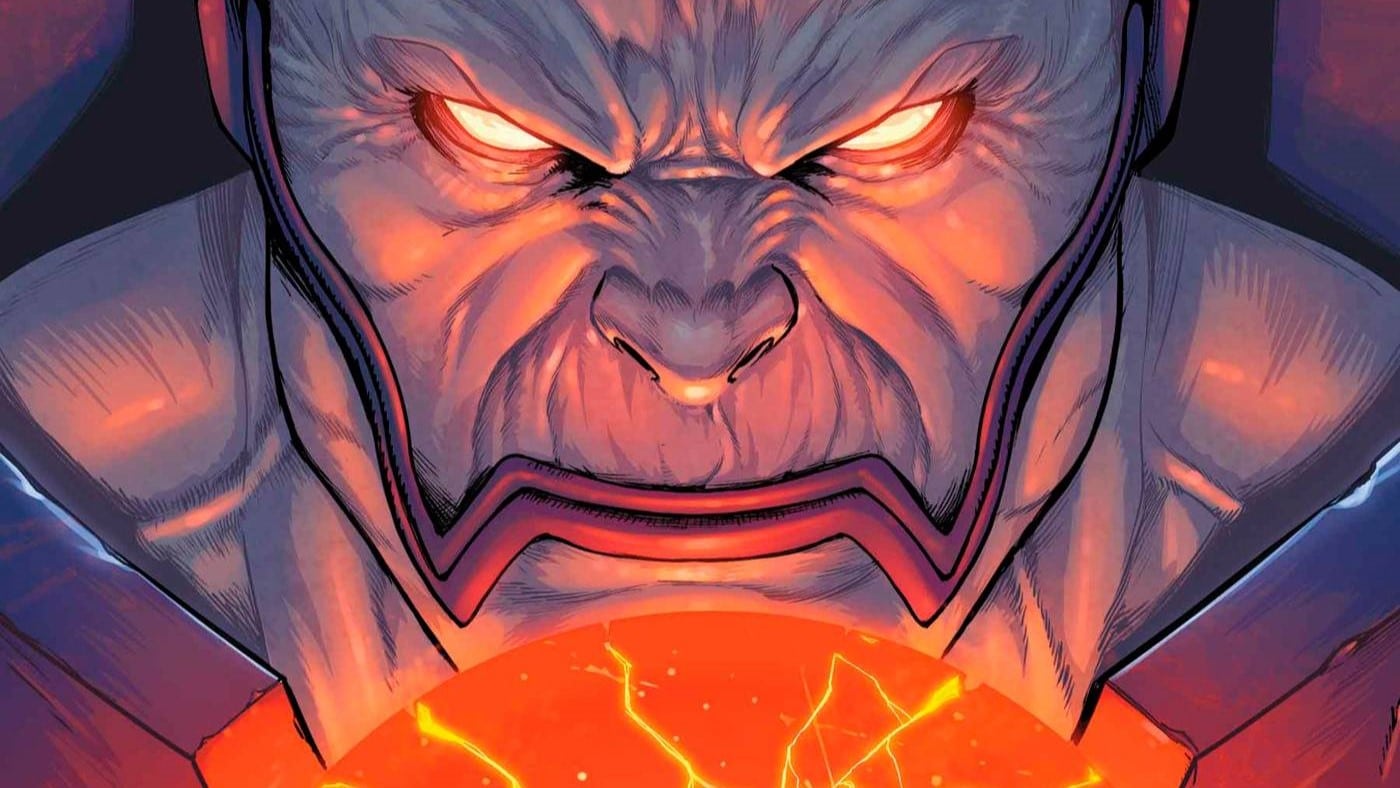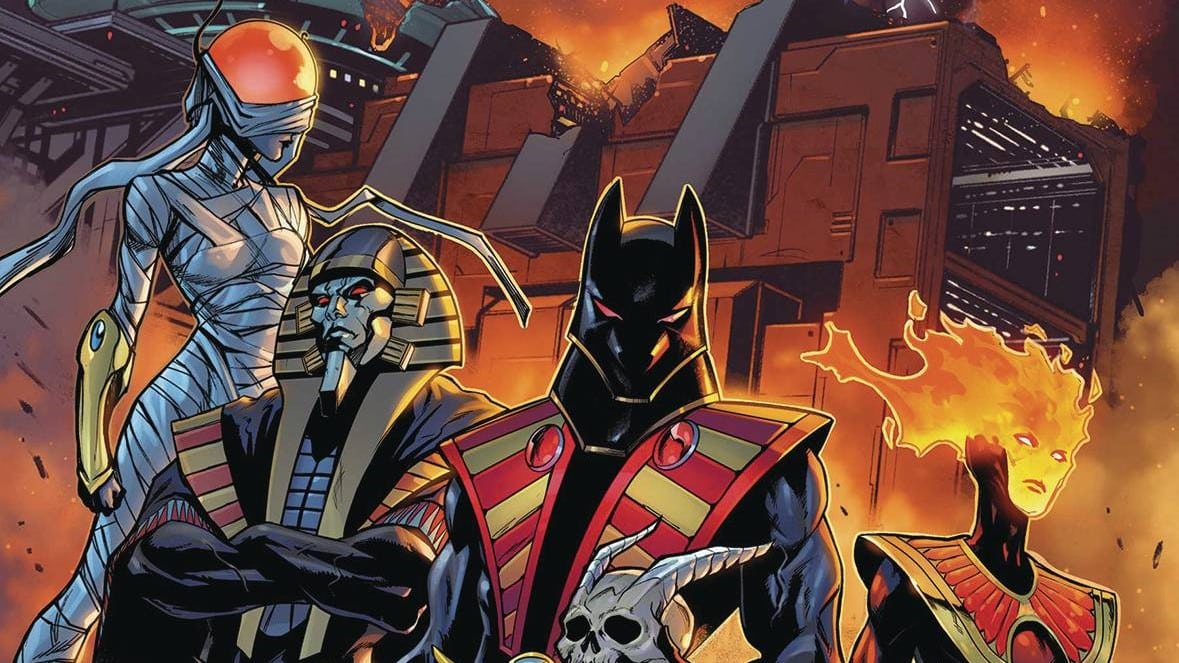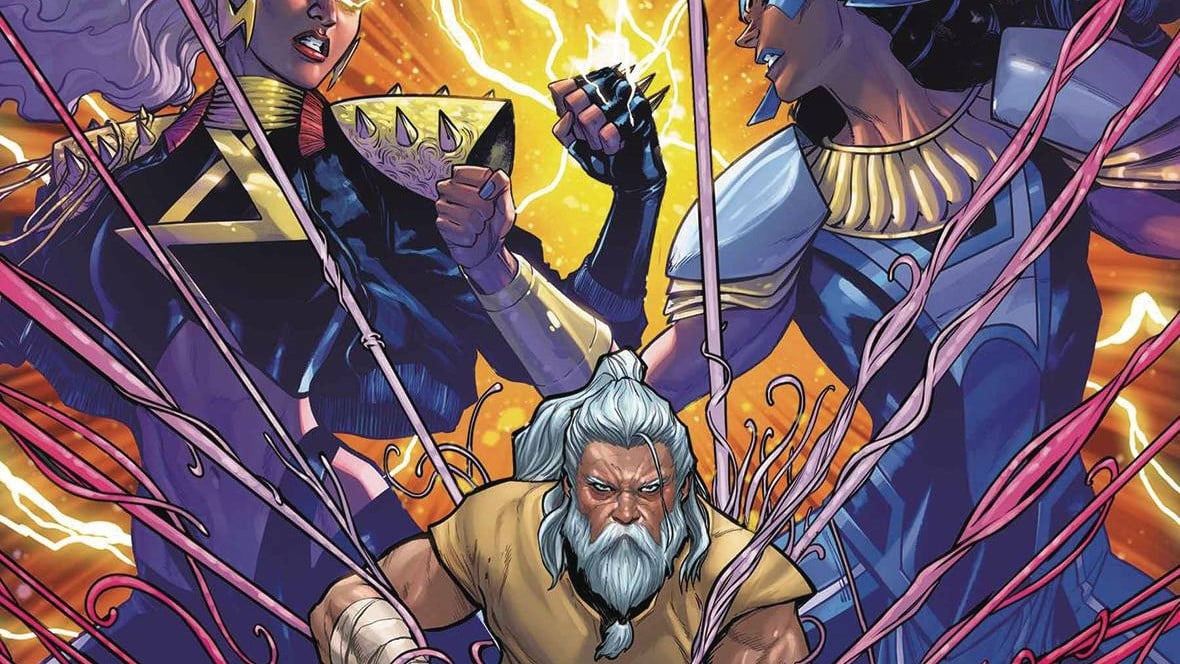Civil war rages on Arakko as news of the new Mutant Massacre reaches the red planet in X-Men Red #14, written by Al Ewing, drawn by Yildiray Çinar, colored by Federico Blee and lettered by Ariana Maher.
A year ago, under circumstances best left for another story, I played my first game of chess. I was excited and a bit nervous, having just understood the rules and regulations of play.
So I set out my pieces, said a little prayer, and played.
And lost.
Badly.
Again, and again and again.
And I loved it.
In my limited (and maybe incorrect!) appraisal of the game, chess is all about patience. Pieces have their movement pathways, opponents have their play styles, and it’s incumbent upon you, the player, to wait for the opportunity to surprise your opponent at the most inopportune time. Actions create cascading effects, so one errant move — one mistake, or one lucky guess — can set off a chain reaction, leading to an inevitable outcome.
Outcomes that, for me, were rarely positive.
Outcomes for our Arakki brethren that, I suspect, will yield much better results.
This X-Men Red run has been an enticing, enjoyable case study in setup and actions. Watching Al Ewing move people and places in and out of our view, dazzling us with fights that, in retrospect, are little more than smoke screens for the larger moves playing in the background. Here, in X-Men Red #14, we’re treated to a lot of setup — a good amount of necessary exposition, a bunch of exasperated characters, and an action sequence that’s more notable for small acts and repression than out-and-out violence.
There have been many moments in this run (and in its precursor comic, S.W.O.R.D), where I literally shouted in my seat, fervently turning pages back and forth in awe of what I read. While those moments are absent in this issue, it is still thoroughly enjoyable — both for what it is and for the awe it’s surely setting up.
Set the Board
In the beginning, there was Genesis, and she was a bad, bad woman. Ewing’s use of biblical analogies continues here, with a soft allusion to, if not a retelling of, the beginning of the Book of Genesis. Where God created the heaven and Earth, Genesis re-creates the apparition of Arakko, the tree-like doppelganger/partner of Krakoa. In providing life, she scores what was noted as a propaganda win — and propaganda can be powerful. Just as Orchis has used the bully pulpit to malign mutants, and just as mutants have used medicine to manipulate man, Genesis recognizes that inspiring the people is the first battle she must wage in order to win the wars she so desperately craves.
And that inspiration appears to be winning. The warrior Arakki, once spread out among the galaxy, are coming home, happy that their gifts can be put to use once again. Even the artists in the communes are feeling inspired, painting tomes to Annihilation, readying armaments, and, notably, spewing slurs at the human (our friend and Ororo’s once date, Craig Marshall) they once considered a brother.
That Genesis’ inspiration means separation is notable — it’s the exact opposite lesson that Storm’s been teaching. And we know what happens when two opposing forces meet, don’t we?
(Also notable — this is her only appearance in the comic. That her name is more whispered and alluded to than directly encountered plays up the mythos around who she is and what she can do.)
Make a Move
While Genesis is busy creating, our (now) ragtag group of rebels, once at the seat of power, now lies divided, frustrated, angry and humiliated. Kobak, my favorite hedgehog this side of Sonic (or is he a porcupine?), bristles at being forced off the field of action. Yet Logos shows his gift isn’t just spewing metal or talking in rhyme — he uses his words as a salve, uttering the most powerful words of the work:
“I didn’t want you to die.”
Think about all the Arakki that proudly say they’re “not afraid of a life that ends,” at the numerous hordes who throw themselves into certain chaos out of honor and pride. That life has more value than being used as a bargaining chip — that life is meant to be lived, in and with love — is a fairly new concept, one that the “Storm Era” brought into focus. The woman who has not yet died, the woman who chose to live, now inspires others to make the same choice as she. The back and forth between Lodus and Kobak proves her ideology of honesty, love and forgiveness, can take root in even the most violently proud of warriors. In a way, she’s already won the war.
But so many battles remain.
Roberto’s re-emergence serves as another exposition point, where he gives a first hand synopsis of the Hellfire Gala — basically, we’re all dead because of Orchis.
Especially Sam.
The team quickly (maybe a bit too quickly and conveniently) surmises that Orchis somehow influenced Genesis, and that war is the right course of action.
At first blush, this makes sense to the reader who knows that Orchis found a way to visit the Otherworld. However, the team would have no way of knowing this. They also fail to fully grasp that while things may be better emotionally for the Arakki, in many other ways Storm’s tenure as regent has been, well, a failure. The ostracization of the powerful, the floating death moon of Phobos, the massacre at the hands of Uranos — these are all very legitimate gripes that the team hasn’t fully taken ownership of. To fight may be natural, but it’s also a much easier task than self reflection, an irony that I’m not sure any of the characters fully grasp.
Checkmate?
That we’re 70 days into fighting is notable insomuch that it contextualizes the time past since the gala. So many other books have referenced upheaval on Arakko, so it’s fair to say that all the other books in the X-line have had at least two months of activity.
Meaning, for example, that Earth mutants have been in concentration camps for almost two months. That’s a lot of time, and gives context to some of what we see happen in some of the other books released this week.
The issue’s big fight is notable for three reasons:
- Isca, who has her own land in the mountains and demands to be left alone, attacks someone (Omega Rocket lolz) on the side of her sister. Her loyalty is not yet established, meaning either a) both sides have an equal chance of winning or b) there are larger games — and players — at hand.
- Storm — wearing a red cape for battle — chooses to hamper opponents, not kill them. She shows mercy along with her might which, in the eventual aftermath of the fighting, might be as much of a boon as a liability.
- Tearing down the monuments to her enemies — to traitors — fits in well with her “no thrones on Arakko” ideology. And yet! Memory is such a fraught thing, and with Xilo not fully formed, what does it mean to tear down even more memory?
To the last point, that argument — tearing down memory, lest we forget history — is a common trope used by those who wish to keep Confederate monuments alive. Many would argue that these monuments deserve worse than what Storm did to those visages — and by “many” I mean me, specifically, at least. Still, memory is important, and how will memory move in lieu of monuments?
Through the people, of course.
Thus we see on the past page what’s been hinted at for a while: Xilo has bonded with the Fisher King. The implication that memory lives in his blood I’m sure will be explored in future issues.
Issues, which, I’m also sure, will continue to patiently move pieces in place for the inevitable checkmate.
Still, I’m enjoying the process. I’m enjoying all the setup. And I’m excited, as always, to see what the next move will be.
X-Traneous Thoughts
- The framing device here — as the post-scripted words of Xilo — again allude to biblical analogies and works of faith. Notably, stories in the Bible often had two or three viewpoints. The same can be said for Xilo’s interpretation of things, and what we see on page.
- As powerful as Genesis wants you to think she is, note that she doesn’t control the skies, nor does she control the seas. Her power may be great, but it’s not complete. Considering that Annihilation is all about influence, it might just be that bluster is her ancillary omega power.
- Çinar and Blee’s art and color here are sublime. That’s a compliment. There is nothing game changing here, and yet skin tones and hair feel right (always my first go-to when Black characters are in play), and action is easy to follow. The facial expressions of Lodus, especially, are a highlight. They tell a complete story, maybe the story of the whole run. Excellent work.
- I love the red cape on Ororo. Max would be proud.
- As much as I enjoyed this issue, it’s actually the second best Al Ewing/Arakko story of this week. His Marvel Voices: X-Men story, starring Kobak, Bobby Drake and Solem, “The Man With No Shame,” is brilliant. It gives Solem the space to be his normal, flirtatious, lothario self while also reframing his actions as, if not revolutionary, a self-aware defense and reclamation of who is and who he chooses to love. (Also: lore on why he was locked up for so long.) Kobak believes Arakko is a place, as the city of Atlanta once billed itself, “too busy to hate.” Solem lays waste to this lie, and, hilariously and unsurprisingly, lays someone else, too. But you have to read the story to find out who.
Disclaimer: As an Amazon Associate, ComicsXF may earn from qualifying purchases.
A proud New Orleanian living in the District of Columbia, Jude Jones is a professional thinker, amateur photographer, burgeoning runner and lover of Black culture, love and life. Magneto and Cyclops (and Killmonger) were right. Learn more about Jude at SaintJudeJones.com.

